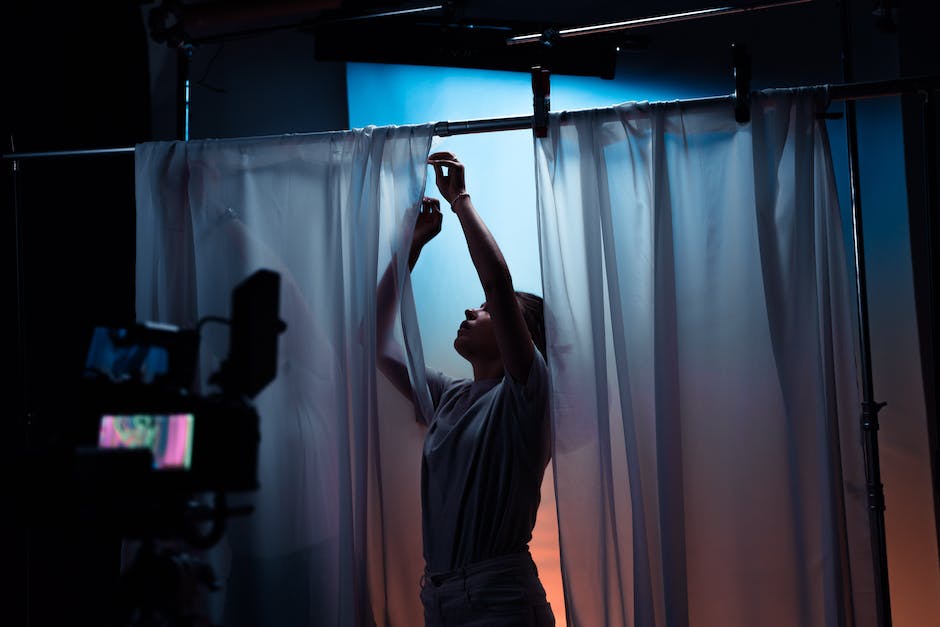Table of Contents
- Introduction
- The Rise of Arab Directors in Hollywood: Breaking Barriers and Shaping the Industry
- Exploring the Impact of Arab Filmmakers on Global Cinema: A Cultural Perspective
- Arab Women Directors: Pioneers in the Film Industry and Agents of Change
- Arab Filmmakers as Cultural Ambassadors: Promoting Diversity and Challenging Stereotypes
- Q&A
- Conclusion
“Empowering Arab voices, one film at a time.”
Introduction
Arab Leaders in the Film Industry: Directing Change and Progress
The Arab film industry has witnessed a remarkable transformation in recent years, with a new generation of talented filmmakers emerging as influential leaders. These Arab directors have not only made significant contributions to the world of cinema but have also played a crucial role in shaping societal narratives and challenging stereotypes. Through their thought-provoking storytelling and innovative filmmaking techniques, Arab leaders in the film industry are directing change and progress, paving the way for a more diverse and inclusive cinematic landscape.
The Rise of Arab Directors in Hollywood: Breaking Barriers and Shaping the Industry

The film industry has long been dominated by Western directors, but in recent years, there has been a significant rise in the number of Arab directors making their mark in Hollywood. These talented individuals are not only breaking barriers but also shaping the industry in profound ways.
One of the most notable Arab directors to emerge in Hollywood is Ava DuVernay. DuVernay, who is of African-American and Arab descent, has made a name for herself with films such as “Selma” and “A Wrinkle in Time.” Her work has not only garnered critical acclaim but has also opened doors for other Arab directors to tell their stories on the big screen.
Another Arab director who has made a significant impact in Hollywood is Nadine Labaki. Labaki, a Lebanese filmmaker, gained international recognition with her film “Capernaum,” which was nominated for an Academy Award for Best Foreign Language Film. Labaki’s work explores social issues and sheds light on the struggles faced by marginalized communities, making her an important voice in the industry.
The rise of Arab directors in Hollywood is not only significant for representation but also for the stories they choose to tell. These directors are bringing a fresh perspective to the industry, offering narratives that challenge stereotypes and provide a more nuanced understanding of Arab culture.
One example of this is the film “Theeb,” directed by Naji Abu Nowar. “Theeb” tells the story of a young Bedouin boy during World War I and offers a glimpse into the rich cultural heritage of the Arab world. Nowar’s film not only received critical acclaim but also shed light on a lesser-known aspect of history, showcasing the diversity of Arab storytelling.
In addition to breaking barriers and shaping the industry, Arab directors are also making significant strides in promoting diversity and inclusion. By telling their own stories, these directors are challenging the traditional Hollywood narrative and creating space for underrepresented voices.
One such director is Hany Abu-Assad, a Palestinian filmmaker known for his films “Paradise Now” and “Omar.” Abu-Assad’s work explores the Israeli-Palestinian conflict and sheds light on the experiences of Palestinians living under occupation. His films have not only received international recognition but have also sparked important conversations about the realities faced by Palestinians.
The rise of Arab directors in Hollywood is a testament to the power of storytelling and the importance of representation. These directors are not only breaking barriers but also challenging stereotypes and providing a more nuanced understanding of Arab culture. Their work is shaping the industry and paving the way for future generations of Arab filmmakers.
As the film industry continues to evolve, it is crucial that diverse voices are given the opportunity to tell their stories. Arab directors are leading the way in this regard, and their contributions are invaluable in creating a more inclusive and representative industry.
In conclusion, the rise of Arab directors in Hollywood is a significant development that is breaking barriers, shaping the industry, and promoting diversity and inclusion. These talented individuals are not only telling their own stories but also challenging stereotypes and providing a more nuanced understanding of Arab culture. Their work is paving the way for future generations of Arab filmmakers and ensuring that diverse voices are heard in the film industry.
Exploring the Impact of Arab Filmmakers on Global Cinema: A Cultural Perspective
Arab filmmakers have made significant contributions to the global film industry, both in terms of artistic achievements and cultural representation. Their work has not only challenged stereotypes and misconceptions about the Arab world but has also provided a platform for Arab voices to be heard and understood on a global scale. This article aims to explore the impact of Arab filmmakers on global cinema from a cultural perspective, focusing on their role in directing change and progress.
One of the most notable aspects of Arab cinema is its ability to shed light on the diverse cultures and experiences within the Arab world. Arab filmmakers have used their craft to challenge the monolithic portrayal of the Arab world often seen in Western media. By presenting nuanced and multi-dimensional characters, they have humanized Arab individuals and communities, allowing audiences to connect with their stories on a deeper level. This has not only fostered a greater understanding and appreciation of Arab culture but has also helped to break down stereotypes and prejudices.
Moreover, Arab filmmakers have played a crucial role in addressing social and political issues within their societies. Through their films, they have tackled topics such as gender inequality, political oppression, and religious extremism. By bringing these issues to the forefront, Arab filmmakers have sparked important conversations and encouraged societal change. Their films have served as a catalyst for social movements and have empowered individuals to challenge the status quo.
In addition to their cultural and social impact, Arab filmmakers have also made significant artistic contributions to global cinema. Many Arab directors have garnered international acclaim for their unique storytelling techniques and visual aesthetics. Their films have been recognized at prestigious film festivals and have received critical acclaim from audiences and critics alike. This recognition has not only elevated the status of Arab cinema but has also opened doors for Arab filmmakers to collaborate with international production companies and work on global projects.
Furthermore, Arab filmmakers have been instrumental in nurturing and supporting emerging talent within the region. They have established film schools, workshops, and mentorship programs to provide aspiring filmmakers with the necessary skills and resources to pursue their passion. This investment in the next generation of Arab filmmakers has not only contributed to the growth of the industry but has also ensured a continued representation of Arab voices in global cinema.
Despite the achievements and progress made by Arab filmmakers, they continue to face challenges and obstacles. Limited funding, censorship, and political instability are just a few of the hurdles that they have to overcome. However, their resilience and determination have allowed them to thrive and make their mark on the global film industry.
In conclusion, Arab filmmakers have had a profound impact on global cinema from a cultural perspective. Through their work, they have challenged stereotypes, addressed social and political issues, and made significant artistic contributions. Their films have not only provided a platform for Arab voices to be heard but have also fostered a greater understanding and appreciation of Arab culture. Despite the challenges they face, Arab filmmakers continue to direct change and progress, shaping the future of global cinema.
Arab Women Directors: Pioneers in the Film Industry and Agents of Change
Arab Women Directors: Pioneers in the Film Industry and Agents of Change
The film industry has long been dominated by men, but in recent years, Arab women directors have emerged as pioneers in the field, challenging traditional norms and pushing for change. These talented filmmakers are not only breaking barriers but also using their art to shed light on important social issues and advocate for gender equality.
One of the most prominent Arab women directors is Haifaa al-Mansour from Saudi Arabia. Al-Mansour gained international recognition with her film “Wadjda,” which was the first feature film shot entirely in Saudi Arabia and the first to be directed by a Saudi woman. The film tells the story of a young girl who dreams of owning a bicycle, a simple desire that challenges societal expectations and norms. Through her work, al-Mansour has become a symbol of empowerment for women in Saudi Arabia and beyond.
Another influential Arab woman director is Nadine Labaki from Lebanon. Labaki’s films, such as “Caramel” and “Capernaum,” tackle issues such as gender inequality, poverty, and the plight of refugees. Labaki’s unique storytelling style and her ability to capture the raw emotions of her characters have earned her critical acclaim and numerous awards. Her work has not only brought attention to the struggles faced by marginalized communities but has also sparked important conversations about social justice.
In addition to al-Mansour and Labaki, there are many other Arab women directors who are making their mark in the film industry. Hala Khalil from Egypt, for example, is known for her films that explore the complexities of relationships and the challenges faced by women in Egyptian society. Her film “Nawara” delves into the lives of working-class women and the obstacles they encounter in their daily lives.
These Arab women directors are not only creating thought-provoking films but are also actively working to promote gender equality within the industry. They are paving the way for future generations of female filmmakers by mentoring aspiring directors and advocating for more opportunities for women in the film industry. Their dedication to their craft and their commitment to social change have made them true agents of progress.
However, it is important to acknowledge that Arab women directors still face significant challenges in a male-dominated industry. They often have to navigate cultural and societal expectations that limit their creative freedom and opportunities. Despite these obstacles, these directors continue to push boundaries and challenge the status quo, proving that their voices deserve to be heard.
In conclusion, Arab women directors are pioneers in the film industry, using their art to challenge traditional norms and advocate for change. Through their films, they shed light on important social issues and promote gender equality. Despite the challenges they face, these directors are making significant strides and paving the way for future generations of female filmmakers. Their contributions to the industry are not only groundbreaking but also essential in creating a more inclusive and diverse film landscape.
Arab Filmmakers as Cultural Ambassadors: Promoting Diversity and Challenging Stereotypes
Arab Filmmakers as Cultural Ambassadors: Promoting Diversity and Challenging Stereotypes
The film industry has long been a powerful tool for shaping public opinion and influencing cultural perceptions. Arab filmmakers, in particular, have emerged as cultural ambassadors, using their craft to promote diversity and challenge stereotypes. Through their work, they have been able to shed light on the rich and diverse cultures of the Arab world, while also challenging preconceived notions and misconceptions.
One of the most significant contributions of Arab filmmakers is their ability to showcase the diversity within the Arab world. Often, the Arab world is portrayed as a monolithic entity, with little attention given to the distinct cultures and traditions that exist within it. Arab filmmakers have taken it upon themselves to challenge this narrative by highlighting the unique aspects of their respective countries and communities.
For example, Egyptian filmmaker Youssef Chahine was known for his portrayal of the vibrant and cosmopolitan city of Cairo. His films, such as “Cairo Station” and “Alexandria… Why?”, depicted the daily struggles and aspirations of ordinary Egyptians, providing a nuanced and authentic portrayal of life in Egypt. Chahine’s work not only showcased the diversity within Egypt but also challenged the stereotypes often associated with Arab societies.
Similarly, Lebanese filmmaker Nadine Labaki has been praised for her ability to capture the complexities of Lebanese society. Her film “Caramel” explored the lives of five women in Beirut, highlighting their struggles, dreams, and desires. Labaki’s work not only challenged the stereotype of Arab women as passive and oppressed but also showcased the vibrant and modern side of Lebanese culture.
In addition to promoting diversity, Arab filmmakers have also been at the forefront of challenging stereotypes about the Arab world. For far too long, the Arab world has been portrayed in Western media as a hotbed of terrorism and extremism. Arab filmmakers have taken it upon themselves to challenge these stereotypes and present a more nuanced and balanced view of their societies.
For instance, Palestinian filmmaker Hany Abu-Assad gained international acclaim for his film “Paradise Now,” which explored the motivations and dilemmas faced by two Palestinian suicide bombers. The film humanized the characters and provided a deeper understanding of the complex political and social realities faced by Palestinians. Abu-Assad’s work challenged the simplistic and one-dimensional portrayal of Palestinians often seen in Western media.
Similarly, Saudi Arabian filmmaker Haifaa al-Mansour made history with her film “Wadjda,” the first feature film shot entirely in Saudi Arabia. The film tells the story of a young girl who dreams of owning a bicycle, challenging the stereotype of Saudi women as oppressed and devoid of agency. Al-Mansour’s work not only shed light on the struggles faced by Saudi women but also highlighted the resilience and determination of individuals within the society.
In conclusion, Arab filmmakers have emerged as cultural ambassadors, using their craft to promote diversity and challenge stereotypes. Through their work, they have been able to showcase the rich and diverse cultures of the Arab world, while also challenging preconceived notions and misconceptions. By highlighting the unique aspects of their respective countries and communities, Arab filmmakers have provided a more nuanced and authentic portrayal of life in the Arab world. Moreover, they have been at the forefront of challenging stereotypes about the Arab world, presenting a more balanced and humanized view of their societies. As the film industry continues to evolve, it is crucial to recognize and support the important contributions of Arab filmmakers in shaping a more inclusive and accurate representation of the Arab world.
Q&A
1. Who are some notable Arab leaders in the film industry?
Some notable Arab leaders in the film industry include Nadine Labaki, Youssef Chahine, Hany Abu-Assad, and Naji Abu Nowar.
2. What contributions have Arab leaders made to the film industry?
Arab leaders in the film industry have made significant contributions by directing films that explore social and political issues, promoting cultural diversity, and challenging stereotypes about the Arab world.
3. How have Arab leaders directed change and progress in the film industry?
Arab leaders have directed change and progress in the film industry by creating opportunities for Arab filmmakers, telling authentic stories from the Arab perspective, and increasing representation of Arab culture on the global stage.
4. What impact have Arab leaders had on the film industry?
Arab leaders have had a significant impact on the film industry by raising awareness about Arab cinema, winning international awards, and inspiring a new generation of Arab filmmakers to pursue their artistic visions.
Conclusion
In conclusion, Arab leaders in the film industry have played a significant role in directing change and progress. Through their creative vision, they have challenged stereotypes, promoted cultural diversity, and brought important social issues to the forefront. Their contributions have not only shaped the Arab film industry but have also influenced global cinema. As these leaders continue to push boundaries and tell compelling stories, they pave the way for a more inclusive and dynamic film landscape.




